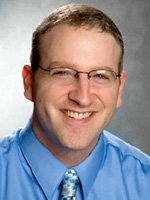Jan 2
2014
Healthcare Structured Data Enables the Grandest Rounds of All

Guest post by Michael Sherling, MD, MBA, co-founder and chief medical officer, Modernizing Medicine.
At most hospitals and academic medical centers, physicians come together once a month to learn new approaches to treatment, to exchange ideas and to debate the possibilities of a challenging diagnosis. We call this Grand Rounds.
Grand Rounds keeps physicians up to date and helps patients too. Instead of relying on one doctor’s opinion, patients get a collective experience of several doctors. Through open debate, a more thoughtful approach to disease treatment is generated. Unfortunately, 80 percent of physicians do not practice in a hospital or academic medical center where Grand Rounds happen.[1] They practice in private practice. While there are opportunities for physicians in private practice to maintain continuing medical education through journals, online courses and annual meetings, most of these practitioners are on their own, so to speak.
When physicians in private practice see a challenging case, they can read about it in a medical textbook, phone a friend (another specialist) or refer the patient to another physician. They don’t have the luxury of calling a “time out” and presenting the case to five other physicians. Pressured by time constraints of increased documentation and decreasing reimbursement, many doctors opt to refer out the more challenging cases, or shy away from newer treatments simply because they don’t have the same access or shared experiences as doctors practicing in hospitals and academic medical centers.
Today, innovative cloud-based electronic health record (EHR) systems can present an opportunity to break down the barriers in private practice so that physicians can make more informed decisions at the point of care. Cloud-based systems rely on one instance of the software where all de-identified medical data is stored. These systems are HIPAA compliant and patient information is protected and secured. Yet, to advance medicine and improve healthcare outcomes for patients and physicians alike, the cloud-based systems can provide physicians access to de-identified patient data. Instead of relying on underpowered clinical control trials for common diseases, outdated studies for rare diseases and anecdotal evidence for orphan diseases, cloud based systems can reveal to physicians which treatment patterns are used for any given disease.